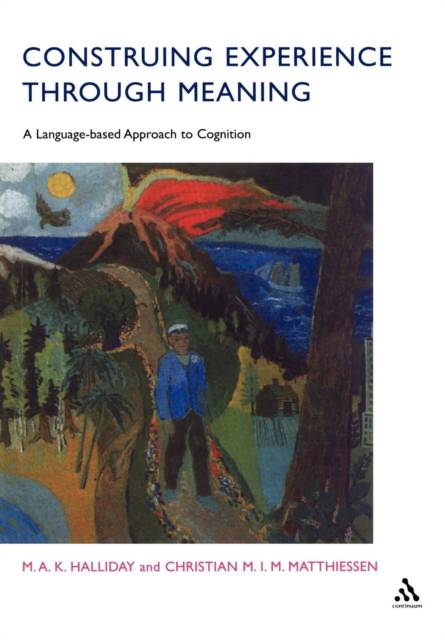
- Retrait gratuit dans votre magasin Club
- 7.000.000 titres dans notre catalogue
- Payer en toute sécurité
- Toujours un magasin près de chez vous
- Retrait gratuit dans votre magasin Club
- 7.000.0000 titres dans notre catalogue
- Payer en toute sécurité
- Toujours un magasin près de chez vous
Construing Experience Through Meaning
A Language-Based Approach to Cognition
Michael A K Halliday, Christian M I M Matthiessen
169,95 €
+ 339 points
Description
The subject of this book is how human beings construe their experience of the world. The construction of experience is usually thought of as knowledge, represented in the form of conceptual taxonomies, schemata, scripts and the like. The authors offer an interpretation that is complementary to this, treating experience not as knowing but as meaning; and hence as something that is construed in language. In other words, the concern is with the construal of human experience as a semantic system; and since language plays the central role not only in storing and exchanging experience but also in construing it, language is taken as the interpretative base. The focus of the book is both theoretical and descriptive. The authors consider it important that theory and description should develop in parallel, with constant interchange between the two. The major descriptive component is an account of the most general features of the ideational semantics of English, which is then exemplified in two familiar text types (recipes and weather forecasts). There is also a brief reference to the semantics of Chinese. Theoretical issues are raised throughout as they become relevant to the discussion, with the theoretical base being drawn from systemic functional linguistics. Both the theoretical and descriptive proposals offered in the book are compared and contrasted with approaches deriving from AI, cognitive science and cognitive linguistics.
Spécifications
Parties prenantes
- Auteur(s) :
- Editeur:
Contenu
- Nombre de pages :
- 672
- Langue:
- Anglais
- Collection :
Caractéristiques
- EAN:
- 9780826488923
- Date de parution :
- 22-06-06
- Format:
- Livre broché
- Format numérique:
- Trade paperback (VS)
- Dimensions :
- 165 mm x 247 mm
- Poids :
- 1143 g

Les avis
Nous publions uniquement les avis qui respectent les conditions requises. Consultez nos conditions pour les avis.






